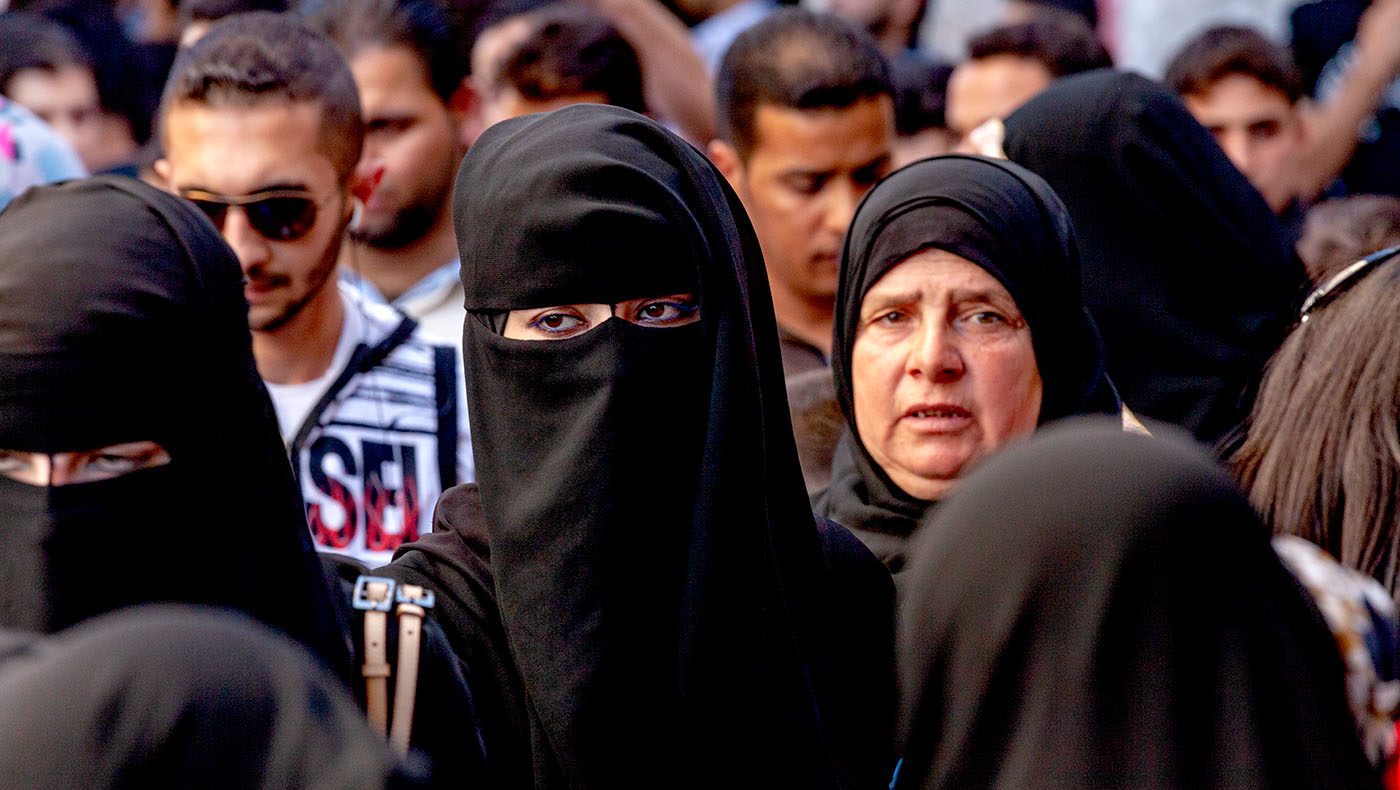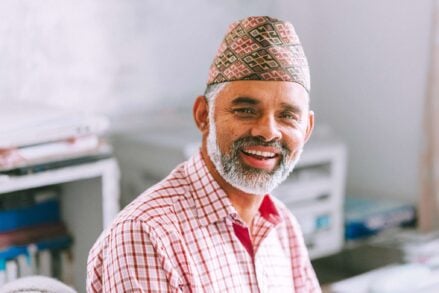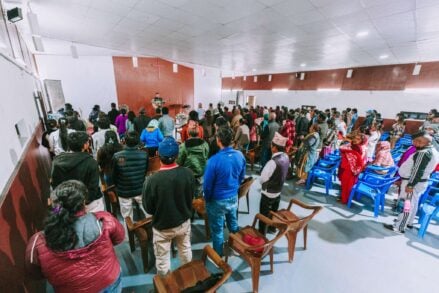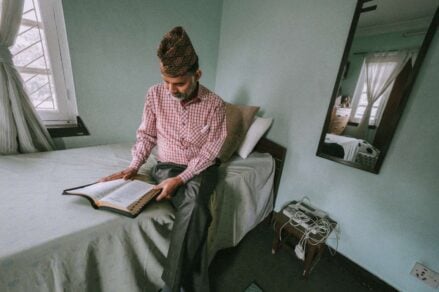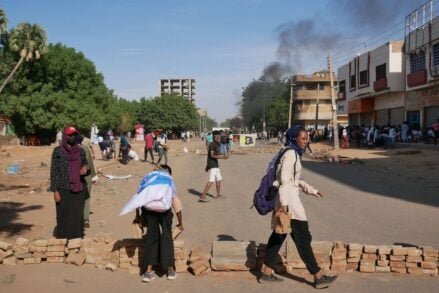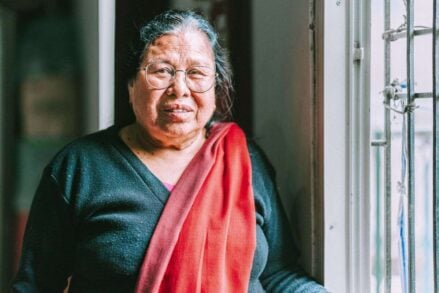In Pakistan, children under the age of 18 follow the religion of their parents. But even if Rafiq was older, conversion from Islam could come with grave danger. That’s because in Pakistan, like many countries around the world, finding Jesus as a Muslim can lead to pressure, oppression and even violence.
In these places where Islam has the support of the state and the surrounding community, any Muslim who encounters Jesus can risk everything to follow Him. Here are 15 places where Christians who came from Islam can feel immense pressure just because they live for Christ:
Afghanistan
“The Taliban, their plan eventually is the elimination of Christianity, and they have been very open about that.” These are the words of Luke (not his real name), the leader of an Afghan house church network, in a recent episode of the USCIRF Spotlight podcast. In fact, the Taliban (who have ruled Afghanistan since mid-2021) told VOA that there are “no Christians in Afghanistan.” This sums up the danger for Afghan Christians. If they are caught by the Taliban, who have ruled the country since late 2021, they could be killed instantly. Anyone who converts from Islam is additionally in danger of execution from their family or surrounding community. To follow Jesus in Afghanistan is to live under constant risk and the ongoing fear of discovery.
Algeria
In Algeria, the official religion is Islam. State institutions are legally required to make sure nothing they do is outside of Islam. Additionally, evangelism is outlawed by law. The U.S. State Department has noted several cases of pastors or churches being targeted by authorities—and that Algeria has also limited supplies of Bibles. Converts from Islam can be charged with a crime under Algerian law and face significant pressure from family and community.
Iran
Christians in Iran experience constant pressure and ongoing harassment. Some minority Christian groups are allowed to worship openly, but aren’t able to worship or read the Bible in the native language of Iran. Christians who convert from Islam are targeted—multiple house church leaders are in prison and converts caught by authorities are often forced to flee or go farther underground. There are signs of hope—and stories about Muslims finding Jesus regardless of the difficulties—but Iran remains an incredibly tough place to follow Jesus.
Kenya
Though Kenya is majority Christian, there are parts of the country that are majority Muslim—and parts of the country where Islamic extremists operate and control territory. In eastern Kenya, Muslims who convert to Christianity can be targeted for violence, and al-Shabab has intentionally targeted believers for murders. In areas of Kenya where there are people of Somali ethnicity, conversion from Islam to Christianity can lead to threats of violence or even death.
Libya
Much of Libya remains outside of direct government control, and extremist groups can operate without much resistance. Some of these groups target Christians, particularly any Muslims who convert to Christianity. There have also been reports of violence against converts, who are particularly threatened by their families and community. Arrests and unjust detainments for Christians have also been observed.
Malaysia
The Malaysian constitution declares that all ethnic Malays—the country’s largest ethnic group—must be Muslim. This has the effect of making it impossible to convert to Christianity and still maintain one’s ethnic identity. The government also allows local authorities and even schools to make laws and policies that favor Sunni Islam over any other religious group. The government continues to investigate the disappearance of Christian leaders, though it’s made little progress.
Maldives
While Maldives is viewed primarily as a vacation destination by most people, it is also one of the world’s worst oppressors of Christians. Only Muslims can be citizens and all non-Muslims are forbidden from serving in any official government role. Children as young as 7 may be given the death penalty for apostacy (which can include conversion from Islam to Christianity); though the punishment hasn’t been used, it’s still distressing. Bibles are nearly impossible to come by and foreign Christians are largely required to keep their faith to themselves.
Mauritania
An official from Mauritania told the United Nations Human Rights Council that “foreigners … are free to practice their own religions.” But he noticeably didn’t say anything about natives of the North African country, where it is illegal to convert from Islam and where blasphemy and apostacy are punishable by death (though this sentence has never been carried out for these “crimes”). Additionally, there are no churches for nationals in the country.
Morocco
In Morocco, foreign Christians can largely worship without impediment. But for the country’s thousands of converts from Islam, it’s a different story. These believers are forced to worship in secret, as conversion from Islam is illegal. Some church leaders even feel afraid to allow Moroccans to worship with them for fear they could be accused of proselyting, a crime under Moroccan law. There is some good news, as elections in the last few years have overturned a government that seemed interested in further oppressing Moroccan Christians. However, there are still accusations that Moroccan authorities harass and discourage some Christians from attending church.
Pakistan
Christians are a minority group in Pakistan and are severely repressed. Pakistan’s notorious blasphemy laws have created an extremely volatile environment for religious minorities—even an accusation of blasphemy can lead to mob attacks and violence. Christians who convert from Islam can also be in danger; many clerics view renouncing Islam as a form of blasphemy. There are additional, shocking reports of Christian women and girls who are forcibly married to Muslim men and/or raped.
Qatar
Most of Qatar’s population—including Christians—can worship freely. That’s because most of Qatar’s population (around 85%) is made up of foreign workers. Foreign Christians can attend church—including ones built on land given by the government—and can largely worship how they want. But native Qatari believers have to worship in secret; apostasy is illegal and anyone who leaves Islam forfeits a great deal.
Saudi Arabia
All Saudi Arabians are required by law to be Muslim—and public worship of any type outside of Islam is banned. In effect, this means there are no churches in the country outside of some on compounds where foreigners live. Christians have reportedly faced harassment and targeting by the government. Though conditions seem to be slowly improving, thanks to modernizing efforts, many religious freedom experts remain skeptical this will mean much for religious minorities. Christians may also be given different treatment under the law, and have been arrested if it’s found they’ve converted from Islam.
Somalia
Since so much of Somalis is outside of government control, this means that areas make conversion from Islam illegal—and in regions run by Islamic extremist group al-Shabab, becoming a Christian can mean execution. Al-Shabab also threatened humanitarian groups and accused them of trying to convert people to Christianity. There is a small number of Christians, but they often worship secretly and in fear for their lives. Even when there is no interference from state authorities, Christians are largely opposed by the surrounding society and community.
Syria
Thanks to the decade-long Syrian Civil War and the threat of the Islamic State group, a huge number of Syrian Christians were forced to flee, decimating the community of believers there. Conversion from Islam remains illegal and the Islamic State group is still active as an insurgency in some areas of the country. Even though the Syrian government has mostly regained territories controlled by the Islamic State group, there are still Islamic extremist groups that control cities and regions who target Christians with violence and oppression. And even though Christians are mostly not directly persecuted by the regime in charge of Syria, they are still squeezed by the government.
Yemen
Yemen effectively has no functioning government and different groups have control over different parts of the country. However, in all parts of the country, Christians are oppressed. Conversion from Islam is illegal, and in some regions, Islamic radicals may target converts for violent attack or execution. Christians have been arrested, detained and tortured, and there were reports that COVID-19 aid was distributed unfairly during the pandemic.
Top photo is representative only: Women wearing niqabs, veils worn by Muslim women that cover all of the face except the eyes, walk down the road in Damascus, Syria. Photo copyright IMB.org
